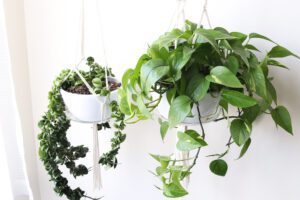Good and Bad Feng Shui Plants
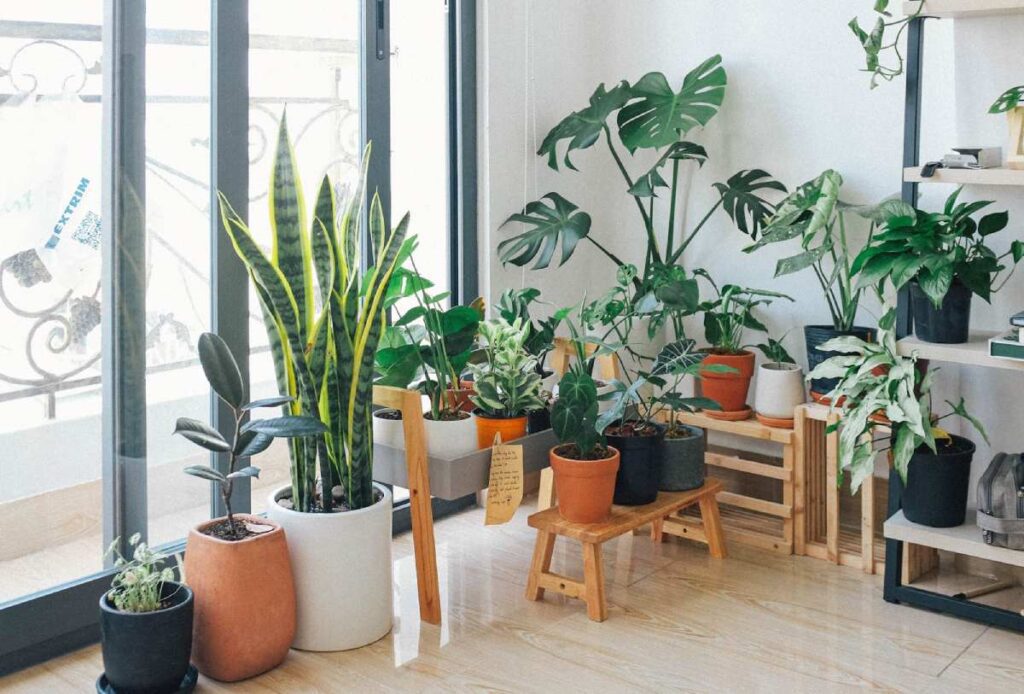
Besides improving the aesthetics of a space, plants invite nature’s energy into your home or office. And according to feng shui principles, houseplants can be nourishing and healing for your energy. But when it comes to the best plants for good feng shui energy, certain guidelines follow.
Plants and Feng Shui
Decorating with living houseplants strengthens the energy of one particular feng shui element: wood. The wood element brings vital energy of growth and action into your space. It can also inspire compassion, kindness, and flexibility. Moreover, the colour green—the shade of many plants—is associated with healing.
There aren’t necessarily good and bad feng shui plants. After all, the key to feng shui is to see the interconnection between dualities. That said, some plants are suitable for feng shui applications, along with plants that can be challenging to use to bring in good energy.
The Best Feng Shui Plants
In general, most plants are great for feng shui, as long as you care for them well. Plants with soft and rounded leaves are typically best, as they promote gentle, nourishing energy.
Some of the best plants for feng shui include:
Areca Palm
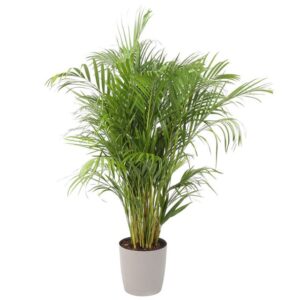
This is a great plant for air-purifying, as well as feng shui. The areca palm can grow larger than many other houseplants, and it has lovely, fan-like leaves. It needs bright, indirect light.
Boston Fern
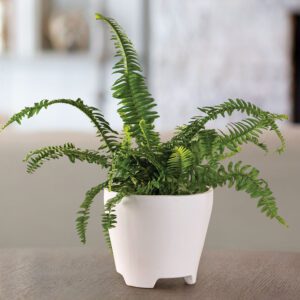
Boston ferns are easy to care for indoors, as long as you have enough light. The petite versions are perfect for small spaces and hanging.
Mother-in-Law’s Tongue
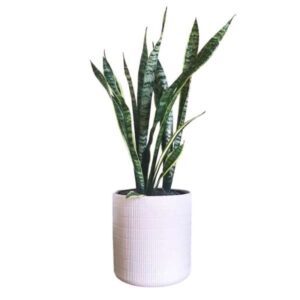
Also known as the snake plant, the mother-in-law’s tongue is an excellent plant for beginners. Although it might appear sharp, it also has a quality of protective energy.
Jade
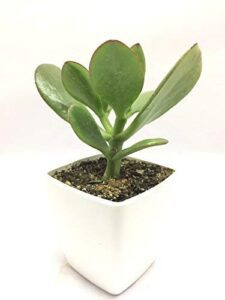
They are also referred to as a money plant. The succulent jade features many rounded leaves. This gives the plant a soft, lush appearance.
Lucky Bamboo
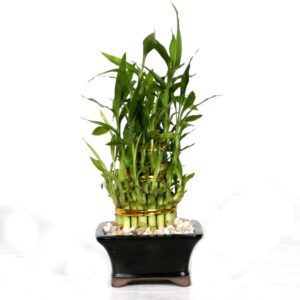
Bamboo represents growth and adaptability. In feng shui use, the number of stalks has a symbolic meaning. For instance, two stalks are supposed to nourish your life areas associated with love, and three stalks nourish your happiness.
Golden Pothos
The golden pothos is easy to care for and propagate. It grows lush, trailing vines with heart-shaped leaves and is excellent for cleaning indoor air.
Challenging Feng Shui Plants
In feng shui, there’s a concept of sha qi, or sharp energy. When attacking energy, often from sharp objects, is directed at your body, draining you of your personal energy. Thus, it’s best to avoid pointy and spiky plants, such as a cactus, if you want to promote good feng shui energy.
Furthermore, a dying and neglected plant also can cultivate draining energy. So before bringing any plants into your space, make sure you have the right environment (and the time) to keep them healthy. Also, remove any dying portions of a plant promptly.
Finally, using fake plants to promote good feng shui energy can be a bit tricky. You must find high-quality fake plants to receive any benefits. They should look so realistic that you have to touch them to confirm they are fake.
Plants and the Bagua
A simple way to use plants for feng shui applications is to locate them in specific Bagua areas. The Bagua is the feng shui energy map of your space, with each area being connected to an aspect of your life.
Here’s a quick overview of all the Bagua areas and how a houseplant can improve that area’s energy.
Family (Zhen)
Houseplants in this Bagua area can promote growth and support in your family life. Plants also can help spark the energy to get things moving if you’re feeling stuck in general.
Wealth (Xun)
The wealth area can benefit from a plant if you want to grow in abundance and attract more prosperity.
Health (Tai Qi)
If your health needs some extra support, a plant in the centre area of your home can encourage healing in all aspects of your life.
Helpful People (Qian)
Sometimes it’s hard to ask for help. A plant in the helpful people area can activate energies to invite support when and where you need it most.
Children (Dui)
Plants in the children area can encourage growth for any offspring or projects. If you have trouble finishing things, this is also a good area to add a plant.
Knowledge (Gen)
Houseplants in the knowledge area can support the expansion of self-knowledge and self-cultivation.
Fame and Reputation (Li)
If you need to be seen and recognised, the wood element of a plant can fuel the fire element in your fame area and increase your visibility in the world.
Career (Kan)
Plants in the career area can encourage growth and expansion in your occupation. They can also provide a boost to your wisdom.
Partnership (Kun)
Plants in the partnership area are a good idea to cultivate kindness and flexibility in relationships.

